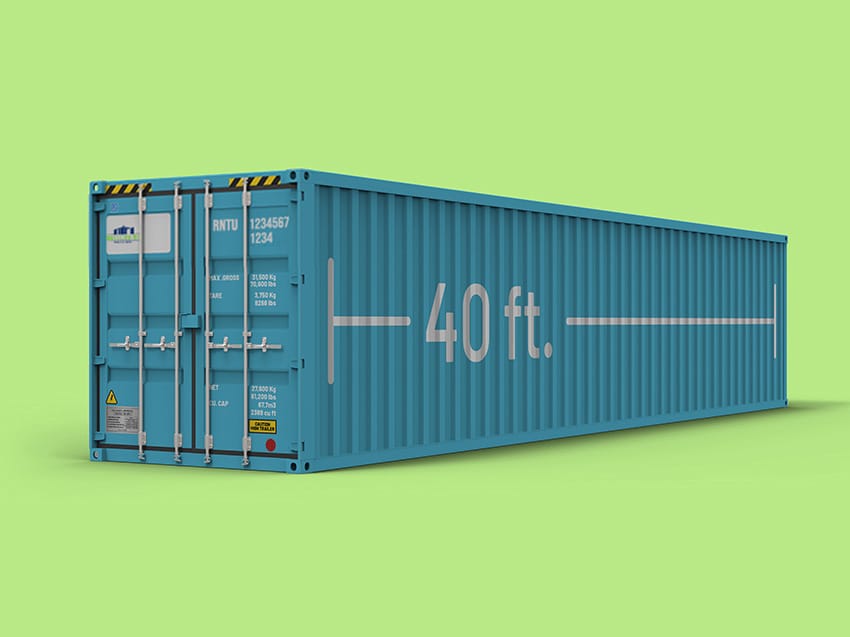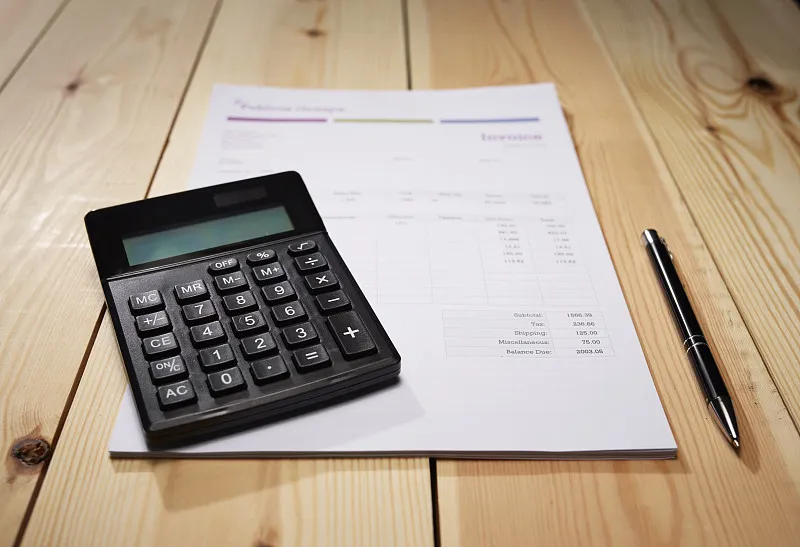
40-foot container size
The dimensions of a 40-foot container are:
- Exterior Dimensions (in feet): 40’ long x 8’ wide x 8’ 6” high
- Exterior Dimensions (in meters): 12.19m long x 2.44m wide x 2.59m high
- Interior Dimensions (in feet): 39’ 6” long x 7’ 9” wide x 7’ 10” high
- Internal Dimensions (in meters): 12.025m long x 2.352m wide x 2.393m high
- Usable Capacity: 67.7m3
Note: 1 ft = 0.3048 m
What is the weight of a 40-foot container?
- Empty weight: about 3,700 kg (3.7 t)
- Maximum load: about 26,000 kg (26 t)
- Gross weight (fully loaded): about 29,700 kg (29.7 t)
How much can a 40-foot container hold?
- Cuft volume: 67 m3
- A 40-foot container is suitable for lighter or bulky goods. Depending on the density of the goods, it can generally hold around 18–22 tons.
How to transport a 40-foot container
A 40-foot container is a standard piece of international shipping equipment that is typically used for ocean, land, and intermodal transportation. Here is a complete guide to shipping a 40-foot container.
1. Cargo preparation
- Cargo packaging: Pack the goods by standard packaging requirements to ensure their safety.
- Cargo manifest: Make a packing list and invoice listing the goods’ type, quantity, and specification.
- Booking space: contact the freight forwarder or logistics company to book a cabin or transportation service.
2. Container dispatching
- Container Rental or Purchase: If you don’t have your own container, you can rent one from a shipping or leasing company.
- Empty Container Transportation: Empty containers are transported from the yard to the loading place (factory or warehouse).
3. Packing
- Packing: Load the goods into the container. Pay attention to the placement of the goods and the distribution of the center of gravity to avoid the goods sliding during transportation.
- Reinforcement of goods: Use straps, air cushions, or wooden boards to reinforce the goods to prevent collision damage.
- Seal the container: after loading is completed, close the container with seals to ensure the safety of the goods.
4. Container transportation
- Land transportation: Transportation of loaded containers to ports by trucks or railroads.
- Port operation: unloading, inspection, and customs clearance of containers at the port.
- Ship loading: loading containers onto cargo ships.
5. Sea Freight
- Tracking in Transit: Use the tracking number provided by the shipping company to track the container in real-time.
- Destination Port Operations: After arriving at the destination port, complete the unloading, customs clearance, and other procedures.
6. Unpacking and delivery
- Land delivery: the container is transported from the destination port to the customer’s designated location by truck or rail.
- Unpacking: after the customer receives the container, the seal is broken, and the goods are unloaded.
- Return of the empty container: the empty container is transported back to the depot or rental company.
7. Follow-up processing
- Documentation: ensure that all documents, such as bills of lading and customs clearance, are filed.
- Customer feedback: confirm with the customer that the goods are intact.
Note:
- Goods compliance: Ensure that the goods do not violate the relevant regulations of the exporting and importing countries.
- Insurance purchase: It is recommended that freight insurance be purchased to reduce transportation risks.
- Timeliness: Select the appropriate transportation method according to the characteristics of the goods to ensure timely delivery.
40-foot container shipping cost
Container transport costs are affected by several factors, the main ones being
- Transport distance: Long-distance transport is more expensive than short-distance transport.
- Transport method: Sea Freight, rail, truck, etc. Different transport methods have different costs.
- Type of goods: For example, perishable goods or goods that require special protection will have higher transport costs.
- Container status: The cost will also increase if special handling is required (e.g., refrigerated containers).
- Port fees, insurance, customs duties: Additional costs must be considered.
To give you a clearer idea of the cost of shipping a 40-ft container, we use the example of shipping from China to the United States. The shipping cost is approximately 4,700-6,200$. If you want the latest container shipping price, please get in touch with us, and you will get the latest quotation and preferential policies.
| Shipping Option | Lead Time | Cost Range | Suitability |
|---|---|---|---|
| LCL Shipping | 23 to 30 days | $50 to $85 per cubic meter | Smaller shipments not requiring a full container |
| FCL Shipping (40-foot container) | 23 to 30 days | $4,700 to $6,200 | Cost-effective for larger, bulk shipments |
You may be interested in the following content:
- What is a cfs(container freight station)? International shipping guide
- What You Need to Know About Container Transportation Costs
- Choosing the correct container: 20-foot container vs 40-foot container
- 20-Foot Container Dimensions, Weights and Uses
- China to US Container Transportation Guide
- Cost of shipping 40ft container from China to USA!
- SOC vs. COC Containers: Choosing the Right Fit for Your Freight
- International Container Transport, 2025 Comprehensive Guide




